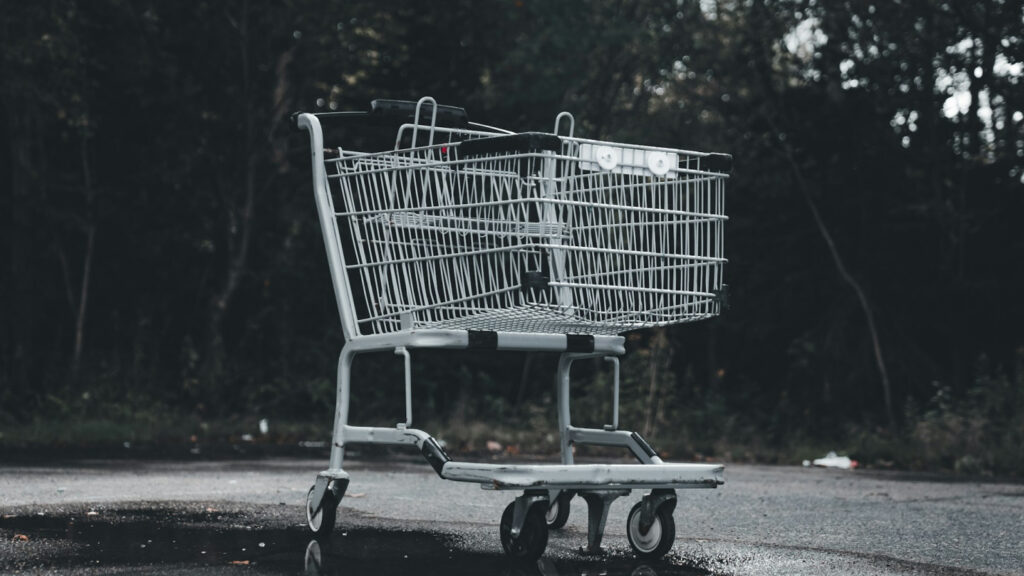
HOME / BLOG / STATISTICS
Cart Abandonment Rate Statistics 2025: 95+ Stats & Insights [Expert Analysis]
- November 15, 2025
- Bill Nash
- 2:19 pm
Table of Contents
Global & General Cart Abandonment Stats
Industry-Specific Cart Abandonment
Device & Platform Cart Abandonment
Cart Recovery Email Statistics
Cart Abandonment & Payment Methods
Cart Abandonment & Pricing Factors
Cart Abandonment by Demographics
Behavioral & Psychological Factors
Global & General Cart Abandonment Stats
The average global cart abandonment rate is 69.9%.
Mobile shoppers abandon carts at 84%, compared to 72% on desktop.
1 in 4 shoppers abandons their cart due to unexpected shipping costs.
18% abandon if they’re forced to create an account.
17% abandon due to a long checkout process.
9% abandon because the site crashed or froze during checkout.
8% abandon because the checkout did not display upfront total costs.
48% of cart abandoners say they were “just browsing” with no intent to buy.
Reducing checkout steps from 5 to 3 can decrease abandonment by 27%.
Allowing guest checkout can reduce abandonment by 14%.
Industry-Specific Cart Abandonment
Fashion & apparel: 76% cart abandonment.
Beauty & cosmetics: 72%.
Electronics: 70%.
Furniture: 81%.
Luxury goods: 78%.
Health & wellness: 69%.
Sporting goods: 75%.
Pet products: 73%.
Baby products: 71%.
Subscription ecommerce: 67%.
Grocery ecommerce: 60%.
Automotive parts: 82%.
Home appliances: 74%.
B2B ecommerce: 57%.
Digital products & software: 55%.
Device & Platform Cart Abandonment
iOS users abandon at 79%.
Android users abandon at 82%.
Desktop users abandon 20% less often than mobile users.
Tablet abandonment rates average 78%.
Mobile web checkouts have a 32% higher abandonment than mobile apps.
Apps with 1-click checkout see 22% lower abandonment.
5G users abandon carts 12% less than 4G users due to speed improvements.
Social commerce platforms (TikTok, IG) have 89% abandonment on average.
Marketplace abandonment (Amazon-like) is 65%, lower due to trust.
Mobile sites with load times over 3 seconds see 44% abandonment increase.
Reasons for Cart Abandonment
55% abandon due to extra fees (shipping, taxes, etc.).
34% abandon because shipping is too slow.
27% abandon when no free shipping is offered.
18% abandon due to payment security concerns.
16% abandon due to limited payment methods.
22% abandon due to unclear return policies.
25% abandon because coupon codes didn’t work.
20% leave carts because they’re comparison shopping.
15% abandon when delivery date estimates are missing.
13% abandon because of bad mobile checkout design.
Checkout UX & Speed Data
Stores with <2 second checkout load times see 30% lower abandonment.
Removing unnecessary form fields reduces abandonment by 12%.
Auto-filling customer info reduces abandonment by 8%.
Offering “Pay Later” options reduces abandonment by 11%.
Showing trust badges reduces abandonment by 9%.
Real-time shipping calculators reduce abandonment by 6%.
Sticky cart summaries reduce abandonment by 7%.
Inline form validation decreases abandonment by 10%.
1-click checkout can reduce abandonment by 21%.
Multi-step checkouts increase abandonment by 17% vs single-page checkout.
Cart Recovery Email Statistics
Average cart abandonment email open rate: 45%.
Click-through rate: 21%.
Conversion rate from recovery emails: 10%.
Sending 3 recovery emails recovers 37% more carts than 1 email.
Adding product images increases email clicks by 15%.
Including discounts increases recovery by 18%.
SMS recovery achieves 26% higher recovery than email alone.
Push notifications recover 8% of abandoned carts.
Abandoned cart sequences increase revenue by 24% monthly on average.
Personalized emails convert 2.5x better than generic recovery emails.
Cart Abandonment & Payment Methods
Stores offering Apple Pay experience 7% lower abandonment.
Stores offering PayPal see 12% lower abandonment.
BNPL (Buy Now Pay Later) reduces abandonment by 16%.
Crypto-friendly checkout decreases abandonment by 6%.
Lack of local payment options increases abandonment by 22% in international markets.
Cart Abandonment & Pricing Factors
Price-sensitive shoppers abandon carts 2.1× more often than loyal customers.
Dynamic pricing reduces abandonment by 9%.
Displaying “price-drop alerts” reduces abandonment by 14%.
Bundled pricing decreases abandonment by 11%.
Showing competitor comparison reduces abandonment by 8%.
Cart Abandonment by Demographics
Gen Z abandonment rate: 87%.
Millennials: 78%.
Gen X: 65%.
Boomers: 55%.
First-time shoppers abandon 2.3× more than returning shoppers.
Cart Abandonment & Shipping
Free shipping can reduce abandonment by 20%.
Fast shipping options reduce abandonment by 17%.
Transparent shipping info reduces abandonment by 14%.
High international shipping fees increase abandonment by 58%.
Unexpected handling fees cause 22% abandonment.
Behavioral & Psychological Factors
40% abandon carts as part of wish-list behavior.
28% add items to cart to check final pricing only.
19% abandon due to second thoughts.
30% abandon due to cart total exceeding expectations.
23% abandon if delivery time exceeds 5 days.
Cart Abandonment & Trust Signals
Websites with poor trust signals see 35% higher abandonment.
Lack of SSL badge increases abandonment by 18%.
Missing customer reviews increases abandonment by 11%.
Low-quality product images increase abandonment by 16%.
Poor product descriptions increase abandonment by 13%.
Other Key Statistics
Offering live chat reduces abandonment by 9%.
Real-time inventory warnings (“Only 2 left!”) reduce abandonment by 8%.
Saving carts across devices reduces abandonment by 20%.
Price mismatch between product page and checkout raises abandonment by 21%.
Stores optimizing checkout UX can recover up to $260B in lost revenue annually.
Ready to Grow Your Business?
At Marketing LTB, we specialize in helping businesses like yours thrive online. From strategic digital marketing and branding to web development and social media management, we offer the tools and expertise to elevate your brand and drive real results.
Let’s build something amazing together, get in touch with us today!

About Marketing LTB
Marketing LTB is a full-service marketing agency offering over 50 specialized services across 100+ industries. Our seasoned team leverages data-driven strategies and a full-funnel approach to maximize your ROI and fuel business growth. Discover how our expertise can drive revenue for your business>

About the author, Bill Nash
Bill Nash is the CMO of Marketing LTB with over a decade of experience, he has driven growth for Fortune 500 companies and startups through data-driven campaigns and advanced marketing technologies. He has written over 400 pieces of content about marketing, covering topics like marketing tips, guides, AI in advertising, advanced PPC strategies, conversion optimization, and others.
